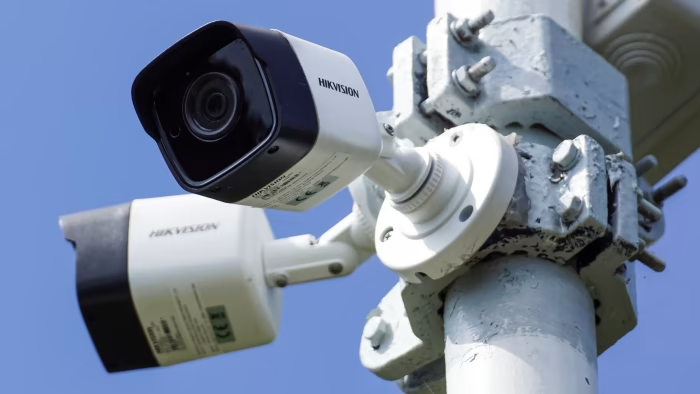The question of whether the Government’s right to surveillance (Government Surveillance) and the question about the infringement of that right have been the main issues that have been debated fervently in the last few years.
Technology is not waiting for anybody; governments are getting more creative and they have learned to eavesdrop on their citizens globally.
This is a big problem related to the citizens’ privacy and civil rights, and also the abuse of the government’s power, which is why we have people standing against the government. However, the advocates of the idea of government spying say that it is a key element of public safety and crime deterrence.
Table of Contents
ToggleWhat Will We Look Into?
This writing will look into the positives and negatives of Government Surveillance Technology as well as the ways it affects the very society.
We will look at the various ways surveillance is being used, like mass data collection, electronic tracking, and camera-based monitoring, and evaluate how easy they are in reaching their intended aim. We’ll also talk about the lawful and ethical conflicts associated with surveillance, and how it influences the fundamental rights and liberties of individuals.
By addressing these issues, this essay has two objectives: to provide a clear and well-rounded understanding of state surveillance and its effects on modern life.

The History of Government Surveillance
Surveillance is a very old fact that can even be found in ancient forever when the kings used their citizens in different ways of monitoring. This time came with technology to be more effective in the methods of surveillance. The telegraph, telephone, and internet that came later, gave officials all the possibilities that they could to spy on people. By way of example, during World War I, the British government intercepted and analyzed telegrams, which is a further demonstration of an early mass surveillance effort. The same thing was done by the U.S. government, which used wiretapping a lot during the Cold War.
After the 9/11 attacks, bettering the efficiency of the surveillance efforts became a necessary step to have an efficient network that could allow intelligence agencies to achieve their missions.
The USA PATRIOT Act, in one of the provisions, allows the U.S. authorities to work with subsequent partners while giving them the privacy token, which then allows the US groups of shared intelligence to keep track of people at a relatively unnoticeable level. Such scenarios led to a continuous, endless debate among citizens about how to balance safety and individual privacy.
Learning about the history of government surveillance of citizens will help us understand its effects on societal development and provide hints for our discussion of how to stay secure while respecting privacy.
Benefits of State Surveillance
The issue of government surveillance technology is unsolved, with the pro faction illuminating its merits. Firstly, the key that makes this effective is perhaps its capability to connive national security to the highest level. With the help of online surveillance and tracking of suspicious activities, government agencies can discover and avert threats. Watching individuals with links to terrorist organizations and organizing crime are also ways for governments, states, or police to immediately intervene and take measures to prevent violence against citizens.
Surveillance is a significant factor in the prevention and solving of crimes. Authorities use tools such as CCTV video, facial recognition, and data analysis to watch over public places and detect crimes. Besides, the knowledge that they are watched is enough for people to avoid doing illegal things. Also, surveillance commonly generates the main proof for the prosecutor’s ability and case-solving.
Stronger National Security
Surveillance implements national security through constant communication monitoring, border defense, and intelligence collection. It is a prudent method that tends to find the problems and solve them before they can develop. It allows the authorities to monitor and apprehend the suspects involved in the attacks, thus avoiding potential attacks and providing safety to the people. Hence forensics, combined with the powerful analytics capability, can extract useful information from big data for analyzing patterns; thus, suspicious people turning into a threat will be stopped quickly.
Together with national assets and critical infrastructure, surveillance is also needed. Watching over the sensitive locations and public places authorities are able to carry out swift responses to security breaches as well as to deter acts of sabotage and espionage. Internet monitoring is like examining the online activities of people, therefore organizations that deal with cyberspaces can easily identify and fight the invading cyber threats that are rapidly increasing their danger to national security.
Preventing & Detecting Criminal Activity
Surveillance helps prevent and solve crimes by monitoring public spaces and using advanced technology. Tools like surveillance cameras capture criminal activity in real time, providing valuable evidence for investigations. Facial recognition technology can track suspects and even stop crimes before they happen. This proactive approach allows law enforcement to identify and address security threats quickly.
Surveillance also discourages crime. Knowing they’re being watched can make people think twice before committing illegal acts, creating a safer society. However, while surveillance is effective, it’s important to respect privacy and protect civil liberties. Proper safeguards ensure surveillance is ethical and doesn’t violate the rights of law-abiding citizens.
What Are The Drawbacks?
Government surveillance technology comes with several downsides that are worth considering. First, it threatens privacy rights. When the government monitors people’s communications and activities, it invades their personal freedom and creates a feeling of being constantly watched. This can erode their sense of autonomy and personal space.
Second, there’s a risk of misuse. Authorities might abuse surveillance powers for personal gain or to silence critics, such as political activists or journalists. This kind of targeted surveillance undermines freedom of speech and dissent.
Finally, collecting and storing large amounts of personal data increases the chances of unauthorized access or misuse, putting people’s security and civil liberties at risk.
Breach of Privacy Protection
Government Surveillance is a serious threat to our right to privacy by the collection and monitoring of personal data without consent. This disclosure of privacy is a detriment to civil liberties and core human rights. The omnipresent monitoring of communications, Internet use, and personal information makes an environment where fear and suspicion thrive and where people’s civil liberties are limited. The invention of facial recognition and biometric data technologies cause the manipulability of personal information to become a problem.
Without transparency or accountability, government agencies can unfairly target individuals based on race, religion, or political beliefs. This not only erodes trust in institutions but also tramples on the democratic principles of equality and justice.
Possibility of Misuse
Over-the-board state surveillance is the highest possible problem, which means that state power will go unchecked. Previous instances of state misuse of surveillance have resulted in human rights abuses against individuals and groups. Authorities have chosen to oppress political enemies, activists, and marginalized groups, causing unequal treatment, intimidation, and even violence. There are cases where governments use monitoring tools not only to oppress and control the whole population but also to violate human rights and undermine democracy.
Transparency and accountability are the two critical elements of surveillance without which the likelihood of misuse of the powers given by authorities is becoming increasingly evident.
The authorized agencies, without active regulation, can conform their activities to the purposes of national security thus above personal benefits, political goals, or public order. That makes the misuse of power by the authorities a matter of loss of public trust and further disintegration of the ability of people to sustain their democracy.
The Final Say
Government surveillance of citizens is a complicated matter with clear benefits and drawbacks. On the plus side, it prevents crime, protects national security, and, along the same line of reasoning, upholds public safety. At the same time, it creates conditions for oversight of law enforcement, thus adding to the public accountability of the people. Nonetheless, surveillance leads to the incursion of privacy, the infringer of civil rights, and the abuse of power. The accumulation of large amounts of personal data is detrimental not only to individual freedoms but the entire society as well through surveillance becoming the driver of life.
Frequently Asked Questions (FAQs)
What is State Surveillance?
State surveillance is the engagement of the government in pervasive surveillance of large numbers of its citizens and visitors in the country.
What are some examples of Government Surveillance?
Government Agencies and investigators use several methods to carry out surveillance. Satellites, video cameras, drones, infrared goggles, locating beacons, and range listening devices are typical Examples of Government Surveillance. Agents can see better at night while conducting investigations thanks to infrared goggles.
What is the main purpose of Surveillance?
Governments utilize it extensively for intelligence collection, especially espionage, crime prevention, safeguarding a process, individual, organization, or property, or investigating criminal activity.




